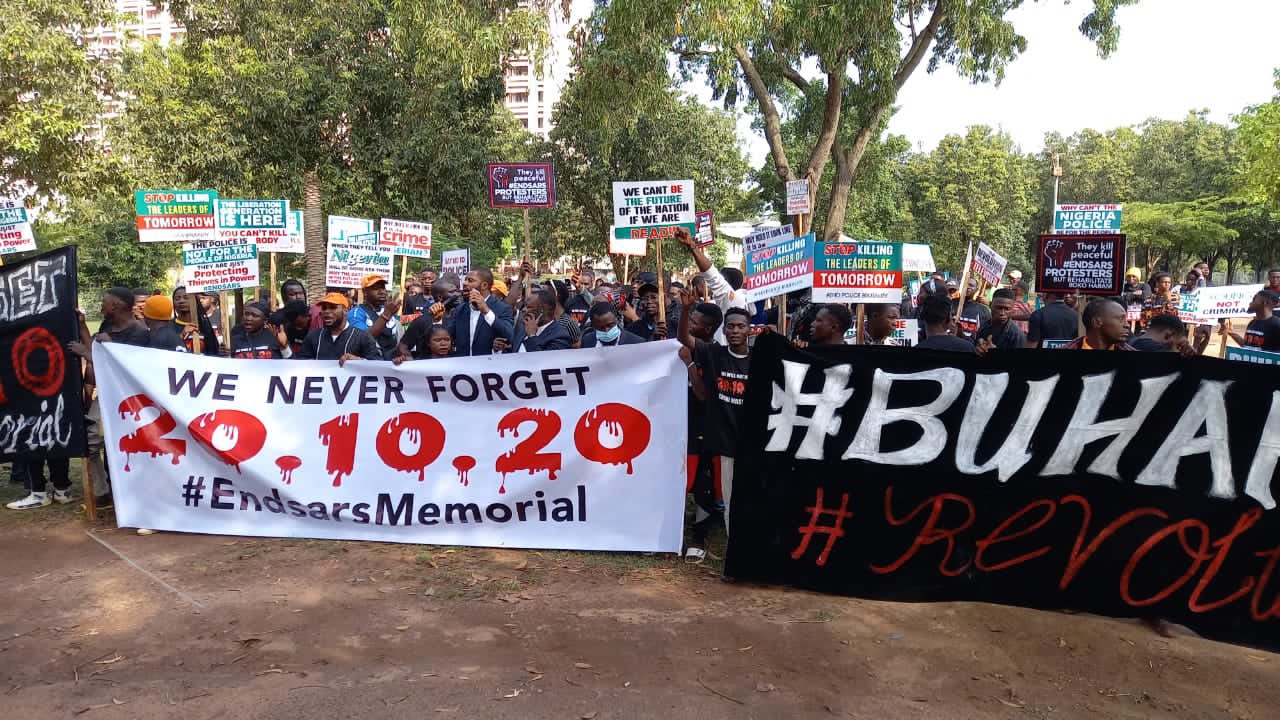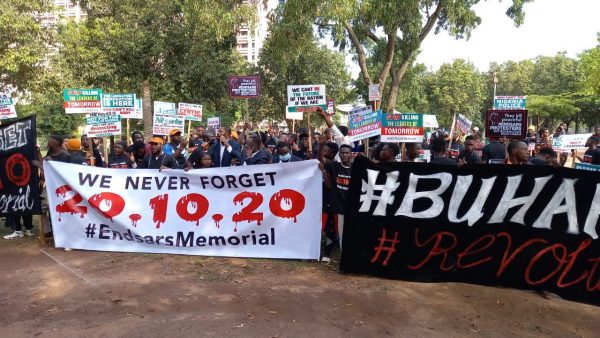20 October 2020 remains fresh on the minds of Nigerians and the world at large. It was one of the darkest moments in Nigeria’s history. On the night of this day, at about 6:50 pm, members of the Nigerian Army opened fire on peaceful protesters at the Lekki toll gate in Lagos State, Nigeria.
Read more about Politics
The number of people who died remains contested. However, Amnesty International reported that 12 people were killed in the shooting. Other individual sources claimed more. The protest was a call to the federal government to disband a unit of the Nigerian Police Force notoriously known as Special-Anti Robbery Squad (SARS).
Today marks one year after the Lekki Toll Gate Massacre, the question remains what has happened so far? Has justice been given? What are the findings of what went down on that inglorious night? What are the lessons for all Nigerians?
To start with, the Nigerian populace and the federal government are still at loggerhead over what happened at Lekki. Lai Muhammed, Minister for Information and Culture, claimed that no killing happened. In his words:
“One year later, and despite ample opportunities for the families of those allegedly killed and those alleging a massacre to present evidence, there has been none: Nobodies, no families, no convincing evidence, nothing. Where are the families of those who were reportedly killed at the toll gate? Did they show up at the Judicial Panel of Inquiry? If not, why?”
However, Foundation for Investigative Journalism (FIJ), founded by renowned and award-winning Fisayo Soyombo, and known for its in-depth investigation and undercover stories, claimed that the killings occurred and families of the deceased have opened up on either retrieving the corpse of their relatives or that the remains of their loved ones are missing. FIJ has been a keen observer of the Judicial Panel of Inquiry reported that over 20 people were killed. As captured on the website of FIJ:
Investigative journalist ‘Fisayo Soyombo spent 10 weeks tracing the deaths, disappearances, and injuries from the military intervention in the Lekki Toll Gate protest of October 20, 2020.
Sign up to the Connect Nigeria daily newsletter
FIJ went on to list the 20 people that had reportedly died on that day and what it meant to their friends, relatives, and acquaintances who were eyewitnesses of what befell their respective loved ones.
Sadly, the government’s continuous denial of what went down at the Lekki toll gate has forced many to rethink the dividends of democracy and the justice system in Nigeria.
As Nigerians commemorate the first anniversary of the Lekki Massacre, it is pertinent to know the lessons Nigerians have learned from the event. First, Nigerians and the world at large have learned that Nigeria is still far from being a democracy and that the idea of fundamental human rights as enshrined in the Constitution is a mirage.
Furthermore, the aborted justice and the ignored call to disband SARS have made many Nigerians give up on restoring the nation to the path of peace, justice, and progress. However, Nigerians must be aware that those who are hell-bent on destroying the country are not giving up, why should they?
Another pivotal lesson for Nigerians to learn from this protest is that an undemocratic and rights-trampling government cannot be removed by the process of revolution as many have called for. If a simple protest was bloody, a revolution will be hell. Nonetheless, the power Nigerians seem to have is the ballot and not the bullet. As 2023 draws close, Nigerians must remember October 20, 2020, as they cast their votes into the ballot box.
Featured Image Source: Premium Times NG
Got a suggestion? Contact us: [email protected]


